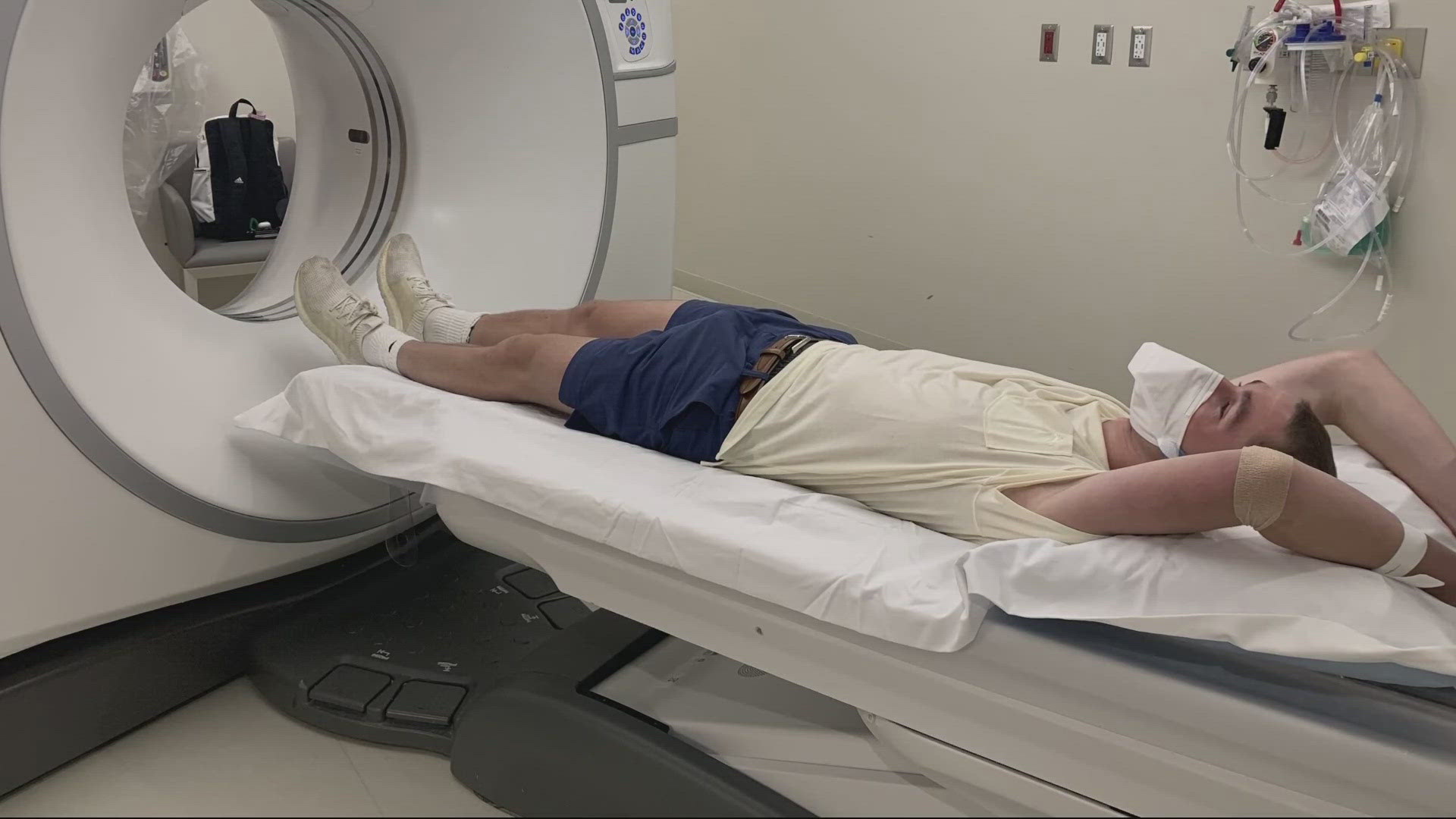PORTLAND, Ore. — New research out of the American Cancer Society suggests certain age groups are more likely to develop over a dozen cancers.
It was just a few years ago that 28-year-old Maxwell Haensel, who lives in New York with his girlfriend, found out some scary news.
“I was diagnosed in early February 2021 with stage 3C testicular cancer. I found out it had spread from my testicle to my lymph nodes and all over my lungs,” said Haensel.
After a half dozen cycles of chemo, radiation and a couple surgeries, he's now in remission. But Haensel is one of a growing number of young people who is at the center of findings from a new American Cancer Society study.
“So, this study looked at how often cancers are diagnosed in different age groups and what they found is the likelihood is increasing in younger age groups,” said Dr. Tracy Muday, executive medical director for Regence BlueCross BlueShield of Oregon.
Muday, who has a background in family medicine, said the study looked at 34 different cancers.
“Seventeen are actually increasing in younger age groups” — meaning Generation X and millennials, people born between the mid-60s to the mid-90s — "which is unexpected,” she said.
“Of course, the first thing we want to know is why is this, and the study didn't look at why this is happening,” she said, adding that most of the cancers on the uptick among younger people are relatively rare, like testicular or gallbladder cancer. But others are more common, like colorectal and breast cancer.
Muday said there are some things that can increase your risk for cancer, which include smoking, being overweight and drinking alcohol.
“Certain cancers have effective screening tests, like cervical cancer or colon cancers,” said Muday.
She said getting vaccinated can also help prevent certain cancers. For example, the HPV vaccine prevents cervical, head and neck, as well as other less common cancers.
But at the end of the day, she said, if something is a change in your body, go see your doctor.
Haensel wishes he'd listened to his body sooner.
“You don't even want to think something is wrong with you, so I put off scheduling an appointment,” Haensel said. “My biggest lesson learned is if something feels wrong, go get checked out because it could always be you that could have the rug swept from under you, and I promise you that appointment is worth the time.”

